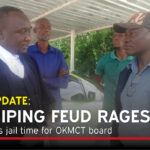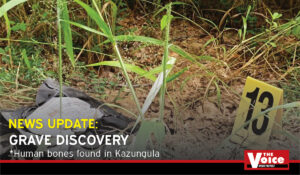Op Ed by High Representative of the United Nations for the least developed countries, landlocked developing countries and small island developing states (UNOHRLLS), Ms. Rabab Fatima.
The Landlocked Developing Countries of Africa are at a crossroads.
These 16 nations, concentrated in the centre and south of the continent, are geographically disadvantaged by their lack of direct access to the sea and face significant barriers to economic growth and development.
The importance of infrastructure cannot be overstated. In an increasingly globalized world, infrastructure is what ties us together: it is the circulatory system of all trade, commerce and communication.
Efficient transportation networks, including roads, railways, and ports, and ICT connectivity are the lifeblood of any economy – and the Landlocked Developing Countries even more than most.
Unfortunately, despite their reliance on it, Landlocked Developing Countries often suffer inadequate infrastructure, hindering their potential for socioeconomic advancement.
This week the United Nations is co-hosting a meeting in Botswana so that the Landlocked Developing Countries of the continent can gather to assess their own progress and make recommendations for a bold new path forward.
Botswana, despite itself being entirely blocked from the sea, has emerged as a beacon of progress.
Through visionary leadership and strategic planning, the country is making bold moves to address the challenges of its landlocked status, and transforming it into a land-linked nation.
By investing in world-class infrastructure, Botswana, in partnership with their transit neighbors, has established crucial transportation corridors that connect it to major ports, regional markets, and international trade routes.
The construction of the Kazungula Bridge, a landmark project completed in 2020, epitomizes Botswana’s commitment to enhancing regional connectivity.
Built in cooperation with Zambia, this bridge elegantly spans the Zambezi River where four countries meet: Botswana and Zambia but also Zimbabwe and Namibia.
It has not only reduced the cost and time required to transport goods by many days, but also enhances the integration of all countries in the region by fostering closer economic ties and cooperation.
Botswana’s success story offers valuable lessons for other landlocked nations in Africa.
Firstly, it underscores the importance of prioritizing infrastructure development and viewing it as a catalyst for regional integration.
By investing in strategic projects that connect Landlocked Developing Countries to their coastal neighbours, we can unlock their vast economic potential and enable them to thrive.
Secondly, Botswana exemplifies the power of regional cooperation.
The country has actively engaged with its neighbors, forging partnerships and collaborative initiatives aimed at addressing common challenges.
By pooling resources, sharing expertise, and jointly pursuing infrastructure projects, African Landlocked Developing Countries can overcome their individual limitations and achieve collective progress.
It’s also true that Botswana’s emphasis on good governance and sound economic policies has created an enabling environment for investment and growth.
Recognizing the pivotal role of the private sector, the government has implemented reforms to attract foreign direct investment and promote domestic entrepreneurship.
The Botswana government has also adopted policies and programmes to foster economic diversification, reduced dependence on traditional sectors, and created new opportunities for job creation and poverty reduction.
To replicate Botswana’s success on a broader scale, the international community must rally behind Landlocked Developing Countries in Africa.
Development partners, regional organizations, and multilateral institutions must prioritize targeted assistance to address the specific challenges faced by these nations.
Investment in infrastructure, technical support for capacity building, and trade facilitation measures are just a few areas that demand attention.
Next year in Rwanda, the United Nations will organize an international meeting on Landlocked Developing Countries, harnessing the lessons from Botswana and Landlocked Developing Countries in other regions.
At this meeting, they will leverage their collective strength through dialogue, knowledge-sharing, and the adoption of a new global development compact that can transform the fortunes of landlocked nations.
The Botswana experience shows that African Landlocked Developing Countries can chart a path towards sustainable development, economic prosperity, and increased resilience.
The time has come for the international community to redouble its efforts in supporting these nations, empowering them to overcome the challenges imposed by geography and unlock their true potential.
Rabab Fatima is the United Nations High Representative for the Least Developed Countries, Landlocked Developing Countries and Small Island Developing States





















